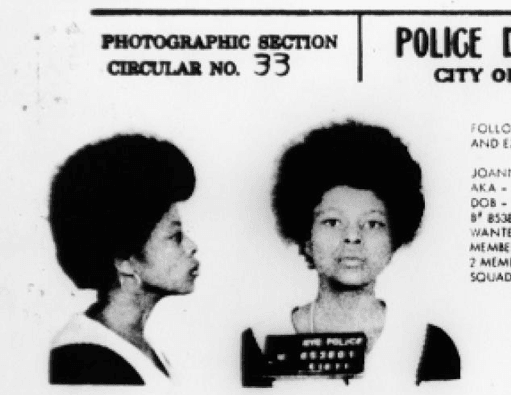As President Barack Obama announced on Wednesday that his administration had struck a deal to secure the release of Alan Gross, an American aid worker who had been held in captivity in Cuba for five years, in exchange for three of the “Cuban Five” spies, one name was conspicuously absent from the President’s remarks: Assata Shakur, a convicted cop-killer who has been evading extradition in Cuba since escaping prison in 1979.
The release of Gross and the Cuban Five spies was part of a sweeping set of changes to American-Cuban relations, including establishing an American embassy in Havana, loosening travel restrictions, and other economic measures, although a full lifting of the embargo would require action by Congress. The plan was immediately slammed by Senators Marco Rubio (R-Florida) and Robert Menendez (D-New Jersey), both of whom are of Cuban descent, as appeasing the brutal communist regime that controls Cuba. Considering the broad range of topics that were covered in the new policy, the extradition of Shakur could have easily been brought up but the White House does not appear to have done so and has made no comment on this issue.
Shakur, also known as JoAnne Chesimard, was a member of the Black Panther Party (BPP) and Black Liberation Army (BLA), and was implicated in a series of violent crimes during the 1970s, including murder, armed robbery, and kidnapping. In 1972, she was the target of a nationwide manhunt for her role as the “revolutionary mother hen” of a BLA cell alleged to have been involved in the execution-style murder of several New York City police officers.
On May 2, 1973, at approximately 12:45 a.m., Shakur was traveling in a car on the New Jersey Turnpike with several other BLA members, when they were pulled over by New Jersey State Troopers. What started as a routine traffic stop quickly escalated into a shootout between the BLA members and the troopers. Trooper Werner Foerster was killed and Trooper James Harper was badly injured. In 1977, Shakur was convicted of first degree murder for Foerster’s death, along with several other felonies stemming from the same events.
In 1979, Shakur escaped from prison with the aid of three members of the BLA who were visiting her smuggled in .45-caliber pistols, took two guards hostage, and stole a prison van. Shakur lived as a fugitive for several years before fleeing to Cuba in 1984. The Cuban government granted her political asylum. She lives under the protection of the Castro family and enjoys a higher standard of living than most Cubans.
The U.S. government has made multiple attempts to extradite Shakur from Cuba, including making an appeal to Pope John Paul II before he made his historic trip to Cuba in 1998. The FBI classified her as a domestic terrorist in 2005, which increased the reward for her capture to $1 million. In 2013, on the fortieth anniversary of Foerster’s murder, the FBI added Shakur to the Top Ten Most Wanted Terrorists List, the first woman to ever make that list. The New Jersey Attorney General also announced an additional $1 million reward for information leading to her capture and return.
On Wednesday, after the President had announced the new Cuba policy, New Jersey authorities told reporters that they hoped that these changes would lead to Shakur’s capture and return, as reported by NJ.com. “With the president’s announcement today on easing relations with Cuba, we remain ever hopeful in our resolve to bring Joanne Chesimard to justice,” said Acting New Jersey Attorney General John Hoffman. “We will be working closely with federal authorities as we explore ways to apprehend her and return her to her rightful place in a New Jersey prison.”
Photo: New Jersey Department of Corrections
Follow Sarah Rumpf on Twitter @rumpfshaker.

COMMENTS
Please let us know if you're having issues with commenting.